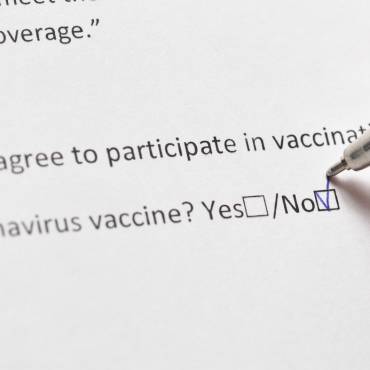The development of influenza A virus (IAV) vaccines, which elicits cross-strain immunity against seasonal and pandemic viruses is a major public health goal. As pigs are susceptible to human, avian, and swine-adapted IAV, they would be key targets of so called universal IAV vaccines, for reducing both the zoonotic risk and the economic burden in the swine industry. They also are relevant preclinical models. However, vaccination with conserved IAV antigens (AGs) in pigs was reported to elicit disease exacerbation. In this study, we assessed whether delivery strategies, i.e., dendritic cell (DC) targeting by the intradermal (ID) or intramuscular (IM) routes, impact on the outcome of the vaccination with three conserved IAV AGs (M2e, NP, and HA2) in pigs. The AGs were addressed to CD11c by non-covalent binding to biotinylated anti-CD11c monoclonal antibody. The CD11c-targeted AGs given by the ID route exacerbated disease. Conversely, CD11c-targeted NP injected by the IM route promoted T cell response compared to non-targeted NP. Furthermore, the conserved IAV AGs injected by the IM route, independently of DC targeting, induced both a reduction of viral shedding and a broader IgG response as compared to the ID route. Our findings highlight in a relevant animal species that the route of vaccine delivery impacts on the protection induced by conserved IAV AGs and on vaccine adverse effects. Finally, our results indicate that HA2 stands as the most promising conserved IAV AG for universal vaccine development.
Source: Front Immunol. 2016 Dec 26;7:641. doi: 10.3389/fimmu.2016.00641. eCollection 2016.


